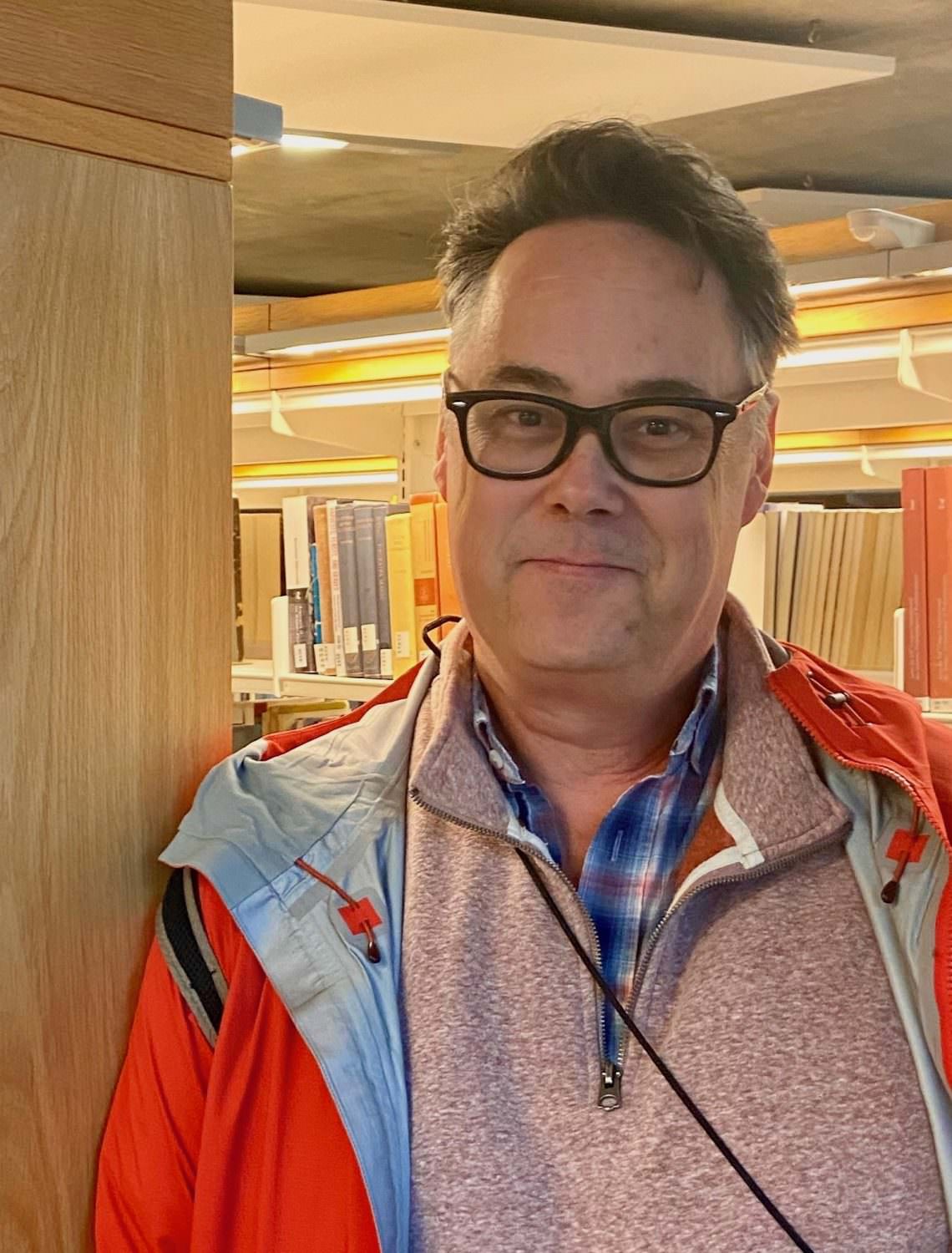An AFS member since 1994, Jason Baird Jackson (he/him) is Ruth N. Halls Professor of Folklore and Anthropology at Indiana University (IU). Within AFS, he helped plan annual meetings in Tulsa (2020/2022) and Bloomington (2011) and has served as chair or member of numerous committees (publications, teaching, membership) and working groups (museums and public policy, communications, digital meetings, US-China, open access, teaching/big questions). A previous member of the Executive Board (2010-2012), he was the founding convener for the Folklore and Museums section and he is active in the Transitional Asia/Pacific Section. Combining museum and university work across his career, he established public folklore and curatorship graduate courses at IU and he has worked closely with many students who have gone on to become leaders in academic, museum, and public folklore. As a museum curator and director, he has curated, co-curated, or project managed more than twenty-five museum exhibitions and hosted many public programs. A three-time journal editor, he now edits the Material Vernaculars book series and is himself the author of numerous articles and book chapters. He is also the author or editor of several books, including the forthcoming volume Concept Work: Constructing Frameworks for Folklore Studies (IU Press, in press).
Statement of Candidacy:
Another world is possible, and folklorists will contribute uniquely to building it, but—wow—do we have challenges and opportunities like never before. The allotted words are too few for what we now face. The needs the world has for us—and that we have for our Society—are massive “opportunities” unlike any we have known. Working with others to prevent or mitigate catastrophes is a big opportunity, right? In the period ahead, AFS will sometimes act collectively. Sometimes AFS will instead provide the social infrastructure that members can leverage for doing the independent work that the world now demands. To keep folklore work possible, AFS will need to support and defend folklorists and folklore institutions to a degree we have never known. Reducing the isolation and vulnerability of folklorists will, in turn, enable them to ameliorate the precarity of those communities they ally with. Elsewhere I’ve written about some of the quite specific new challenges that we face and how we might address them. I’ll keep doing this. I end though by reflecting on the vibe emergent in Albuquerque. We didn’t pretend that the polycrisis did not exist, but we succeeded in supporting each other and in refining our toolkit for work that is now more important than ever. In the period ahead, we must strengthen our community and our capacity for communitas. There is a balance to be struck between centering folklore joy and facing the big problems. The 2024 meeting was a prototype for the work ahead.
